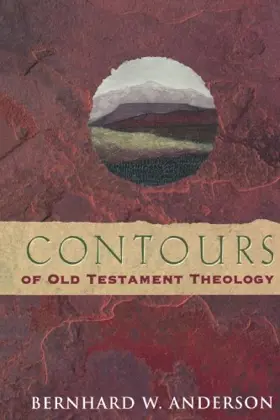

Contours of Old Testament Theology
Pages
372
Publisher
Augsburg Fortress Press
Published
5/1/1999
ISBN-13
9780800630744
In this masterwork, one of America's leading biblical scholars takes a fresh look at the theology of the Old Testament. Anderson cuts his own path and provides us with creative new insights on all the major sections of the Old Testament. He illuminates the nuances of the various covenants and theological shifts in a highly readable style. His conversation partners include the formative contributors from both the Christian community (Eichrodt, von Rad, Childs) and the Jewish community (Heschel, Herberg, Levenson) while interacting with the most recent developments in the field, especially Walter Brueggemann's Theology of the Old Testament.
Reviews
Themes of the holiness of God, covenants, torah/wisdom, and prophecy/apocalyptic are interwoven in this synthesis by an influential scholar.
[Full Review]
The last decade of the twentieth century witnessed a revival of OT theology, in such notable contributions to the discipline as H. D. Preuss's two-volume Old Testament Theology (1991, 1995), B. S. Childs's Biblical Theology of the Old and New Testaments (1992), and W. Brueggemann's Theology of the Old Testament (1997). To this list can now be added Bernhard Anderson's presentation of OT theology. Any evaluation of this work must take into account its intended audience, "theological students, ministers, missionaries, and laypersons" (p. vii); for that audience, many of whom began their OT study with Anderson's well-known introduction, this summary of major OT themes succeeds admirably. In the book's introductory chapters, Anderson discusses issues such as the legitimacy of OT theology, a legitimacy based on the OT's relative independence. As to nomenclature, Anderson notes the problematic character of the historical-linguistic designation "Hebrew Bible" and opts for the traditional confessional-theological "Old Testament." There follows a survey of classical OT theologies, including W. Eichrodt's covenant theology and von Rad's tradition history, along with the contemporary contributions of Childs and Brueggemann. In Part I (pp. 39-78), topics considered include the holiness of God, building upon R.
[Full Review]

